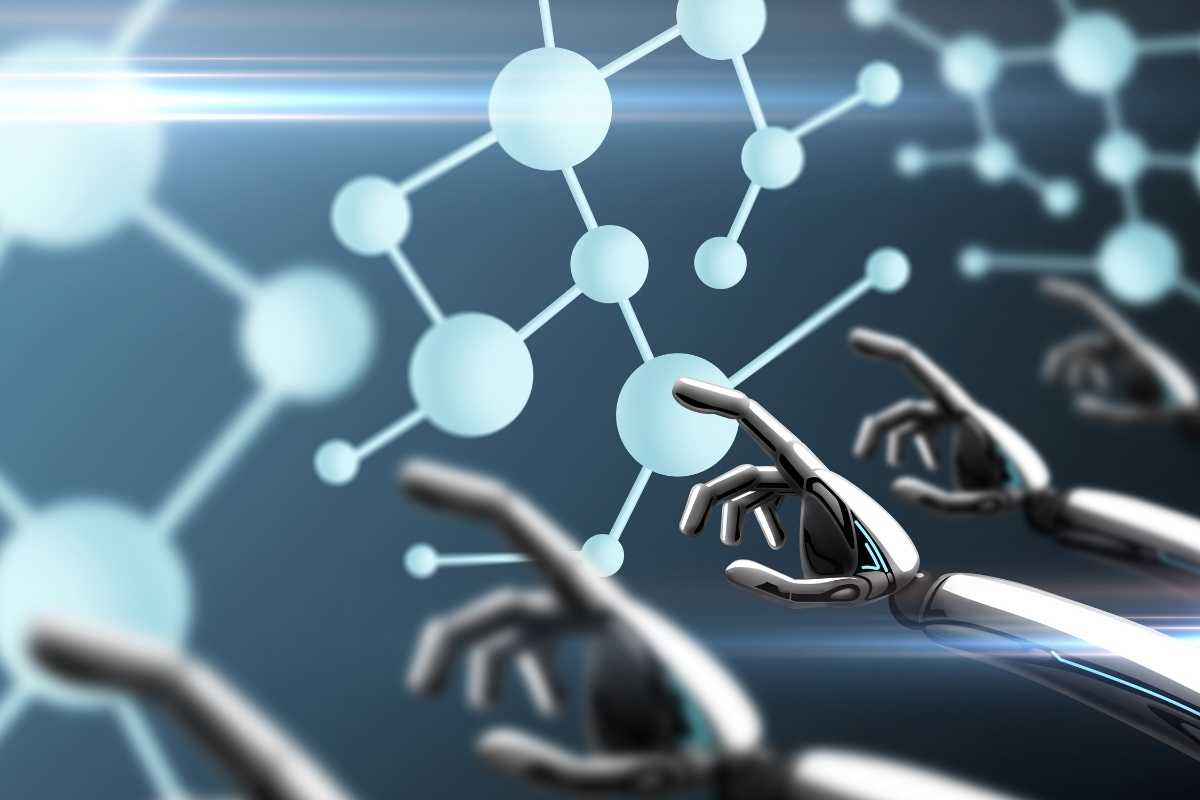Knowing key differences between AI and machine learning are important for industry professionals who are interested and invested in pushing technology forward.
Role of AI vs Machine Learning
AI allows for computers and machines to mimic human intelligence. It allows robots to do many things outside of their normal range of capabilities, like recognize patterns, make decisions and solve problems. Machines can also learn from their own experiences and create new, better outcomes.
Think of AI as the big picture of everything relating to human intelligence in technology. It includes processes such as machine learning and deep learning, which allow machines to engage in human-like behaviors.
Machine learning is a subset of AI where machines learn how to process data and develop models to improve the accuracy of their decisions. Think of machine learning as an essential piece to a puzzle; without it, AI machines just wouldn’t work effectively.
Machine learning models have to undergo a series of steps to work properly. First, data scientists must select and prepare data that will run through an algorithm repeatedly. Then, the results will be compared again and again, until the algorithm yields more accurate outcomes. The algorithm will be essentially trained, allowing for new data to be used and for the machine learning model to work more accurately over time.
Skills Needed for AI vs Machine Learning
Since machine learning is a part of AI, many of the same skills are needed to work in these areas of technology. However, specialized jobs, like machine learning engineers, may require more experience with software that is designed for machine learning. These are a couple of the primary skills that employers are looking for.
TensorFlow. TensorFlow is a popular open-source software for machine learning. The software is free and can allow individuals to perform a wide range of tasks. TensorFlow is utilized by many major technology companies including Google, Intel, and Twitter.
Python. Python is one of the most used programming languages in data science and is a top skill for AI and machine learning. It is an easy language to learn with simple syntax and is used in other areas outside of artificial intelligence and data science.
R Programming. R programming language is the software used for machine learning and other forms of data analysis. R can be used to store and analyze data as well as create statistical models. Top technology companies like Google and Facebook are hiring more data scientists and require them to know R.
Apache Spark and Hadoop. Apache Spark and Hadoop are two different frameworks that are commonly used for processing data, an important step for both AI and machine learning. Apache Spark is known for its speed and flexibility with other programming languages and frameworks. Meanwhile, Apache Hadoop is more secure and can process batches of data well.
AI vs Machine Learning Career Paths
Artificial intelligence is growing in the technology industry. According to the 2021 LinkedIn Jobs on the Rise Report, artificial intelligence experience is in high demand. Jobs in AI, and specifically machine learning, are becoming more popular due to demand.
Data Scientist. A data scientist is responsible for analyzing data and coming up with solutions for a company. They have an overarching role and are responsible for many tasks, including artificial intelligence and machine learning. Data scientists may also be in charge of leading efforts and communicating results to other people in the company.
Artificial Intelligence Specialist. Artificial intelligence specialists conduct research and look at the bigger picture of AI in technology. They do not necessarily need to work at a technology company like a data scientist or machine learning engineer. Instead, they may work at a research center at a university or become a consultant.
Machine Learning Engineer. Machine learning engineers are specialized engineers that build AI models and systems rather than focus on tasks like organizing data or communicating predictions, machine learning engineers work on one very important task — making sure that the machine can constantly improve its predictions and outcomes.
AI and Machine Learning are Revolutionizing Life
Recent advancements in AI and machine learning have revolutionized circumstances for businesses and individuals during the COVID-19 pandemic.
According to an article from the Wall Street Journal, AI and machine learning have predicted demand for businesses and helped optimize supply chains. Companies like XPO Logistics Inc, have managed to come up with alternative solutions for shipments and storage when unpredictable events occur.
AI has also embedded itself slowly into everyday life as well. Many phones and smart home devices use artificial intelligence, whether it’s to unlock the screen or perform an action based on something that an individual said.
Ultimately, while AI vs machine learning have a few important distinctions, they both contribute widely to how technology can exhibit human-like behavior. As positions for these areas only continue to grow in demand in future years, AI will continue to revolutionize life. And, if you\’re interested in a career using either of these technologies, consider the data science program at SCI with curriculum Powered by WOZ.

Sophia Acevedo is a journalist based in Southern California. She is a 2020 graduate from California State University, Fullerton, and a proud Daily Titan alum.










